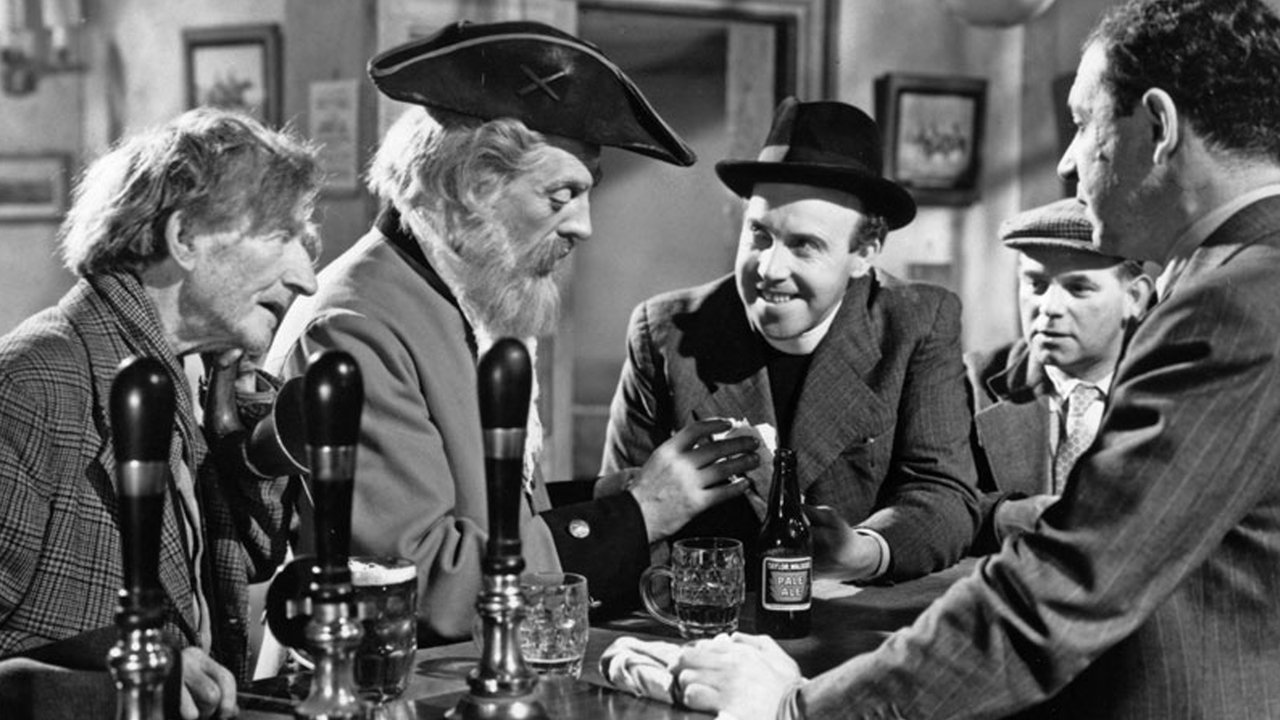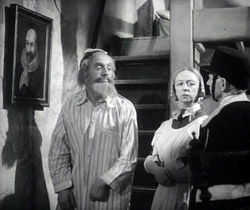
Due to distribution problems, lost celluloid, legal disputes, or bad luck, some excellent films became inaccessible after their debut and eventually fall through the cracks of almost everyone’s memory. 1952’s almost completely forgotten Time, Gentlemen, Please, which isn’t even mentioned in most of my books about film, is a prime example. There were I understand copyright and distribution disputes that kept it from being available after original release for decades. But it’s out on DVD now, and that’s a gift to lovers of British comedy.
The story is set in Essex, specifically in the hardworking town of Hayhoe. Indeed, its 99.9% employment rate has earned it a personal visit by the Prime Minister! The stuffy town council members want to make the employment rate 100% before the PM arrives, but a charming, boozy, Irish rogue named Dan Dance (Eddie Byrne) stands in their way. He has no interest in work, so the prigs in charge stick him in the heretofore unused almshouse, which is run by the dour Mr. and Mrs. Crouch (Ivor Barnard and Thora Hirch). The tables are turned however when a reformist pastor discovers that the town’s founding documents insist that all taxes from the old estates be shared equally among the residents (or, in this case, sole resident) of the almshouses, making Dan the richest man in town, and a candidate for a seat on the town council. The story only gets sillier from there before a most enjoyable denouement.
There are many tremendous character actors in this movie (e.g., Hermione Baddely, Sid Gilbert) but no big stars. The greatest strength of the film is Peter Blackmore’s gut-bustingly funny screenplay, which was based on R.J. Minney’s novel “Nothing to Lose”. Much of the humor comes in the form of the pleasant smiles one gets from “Ye Olde Quaint English Village Full of Eccentrics”, but there are also a number of laugh out loud bits.
The politics of the film are interesting to analyze. If Maggie Thatcher ever saw it, I suspect she would have never stopped throwing up. The hero is willfully unemployed, but rather than resent him sponging off their labour, the townsfolk rally to him and against the local toffs. That was the political mood of the post-war, pro-working stiff, austerity era for many Britons in a way that was not replicated among their American cousins.

I can’t say that Time, Gentlemen, Please! is quite at the level of the great Guinness/Mackendrick Ealing Studios comedies of the period, but it’s almost as good and certainly a highly rewarding film in absolute terms. Please take the trouble to find it; you’ll be richly rewarded for your effort.
p.s. The title is a reference to a pub host’s call at closing time, in an era when watering holes had to close at a certain hour and the patrons were all male.

